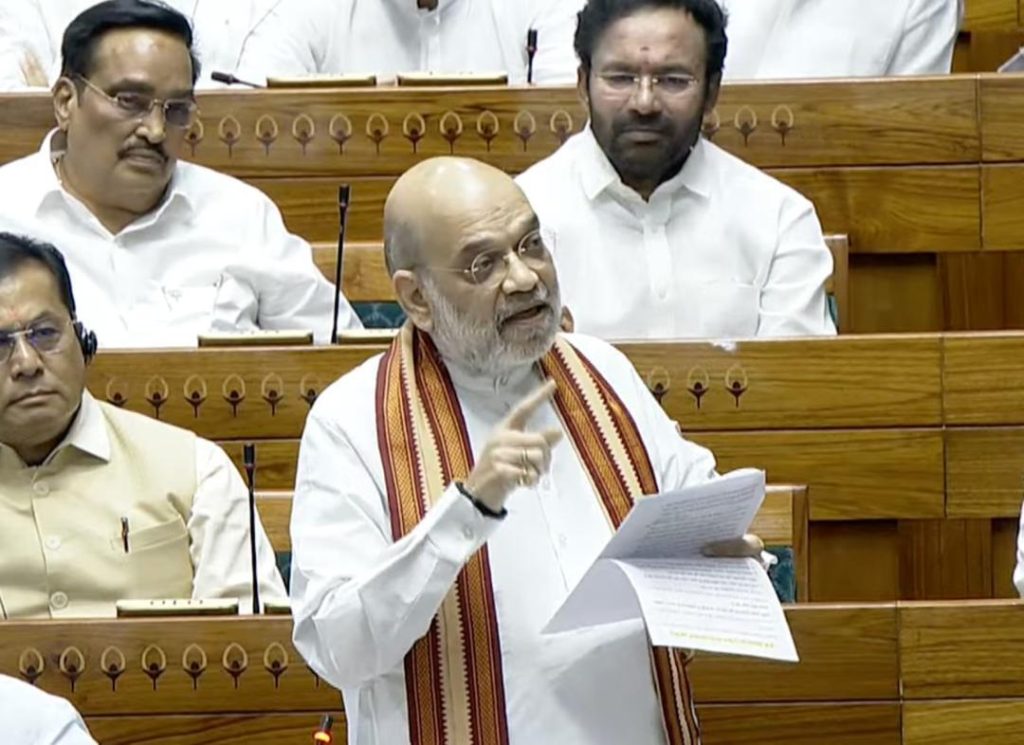
What did J&K locals arrested for housing Pahalgam terrorists tell government?
On April 8, a terror attack took place in Pahalgam, Jammu and Kashmir, in which a group of terrorists opened fire on a tourist bus, leaving several people dead and injured. The investigation into the attack is still ongoing, but the latest development has shed some light on the involvement of local residents in the terrorist activity. Union Home Minister Amit Shah recently revealed in the Lok Sabha that two local residents of Jammu and Kashmir were arrested for housing the terrorists involved in the Pahalgam attack. What did these locals tell the government about the terrorists who took shelter in their hut?
According to Home Minister Amit Shah, the two locals, who are yet to be identified, were arrested for providing shelter to the terrorists who carried out the Pahalgam attack. Shah revealed in the Lok Sabha that the terrorists reached the hut of these locals, which is located 2 kilometers from the Baisaran Valley, on April 21. The terrorists, who were armed with AK-47 and M9 Carbine, spent some time in the hut, eating and drinking tea before leaving.
Shah’s statement in the Lok Sabha revealed some interesting details about the terrorists’ stay in the hut. According to him, the two terrorists who wore black outfits, not only ate and drank tea, but also took some food, salt, chillies, and masalas with them when they left. This information has raised several questions about the extent of local involvement in terrorist activities in Jammu and Kashmir.
The Pahalgam attack was a brazen and brutal act of terror, which has sent shockwaves across the country. The attack, which left several people dead and injured, is being seen as a major security lapse by the authorities. The fact that the terrorists were able to take shelter in a local resident’s hut and spend some time there before carrying out the attack raises several questions about the effectiveness of the security measures in place.
The involvement of local residents in terrorist activities is a major concern for the authorities in Jammu and Kashmir. The region has been plagued by terrorism for decades, and the involvement of local residents in these activities has made it difficult for the authorities to root out terrorism completely. The fact that the two locals arrested for housing the terrorists were able to provide them with shelter and food suggests that there may be a larger network of sympathizers and supporters of terrorism in the region.
The Pahalgam attack is not an isolated incident. There have been several other terror attacks in Jammu and Kashmir in recent months, which have left several people dead and injured. The state has been under strict surveillance, but the attacks continue to happen, indicating that the security situation in the region is still fragile.
The involvement of local residents in terrorist activities has also raised questions about the effectiveness of the government’s policies in the region. The government has been trying to root out terrorism through military operations and intelligence gathering, but the involvement of local residents suggests that there may be a deeper problem that needs to be addressed.
The Pahalgam attack has also raised questions about the role of Pakistan in supporting terrorism in Jammu and Kashmir. Pakistan has been accused of supporting terrorism in the region, and the involvement of local residents in terrorist activities suggests that the country may still be providing support to terrorist groups.
In conclusion, the revelation that two local residents of Jammu and Kashmir were arrested for housing the terrorists involved in the Pahalgam attack has raised several questions about the extent of local involvement in terrorist activities in the region. The fact that the terrorists were able to take shelter in a local resident’s hut and spend some time there before carrying out the attack suggests that there may be a larger network of sympathizers and supporters of terrorism in the region. The government needs to address this issue effectively to root out terrorism completely from the region.
News Source:






